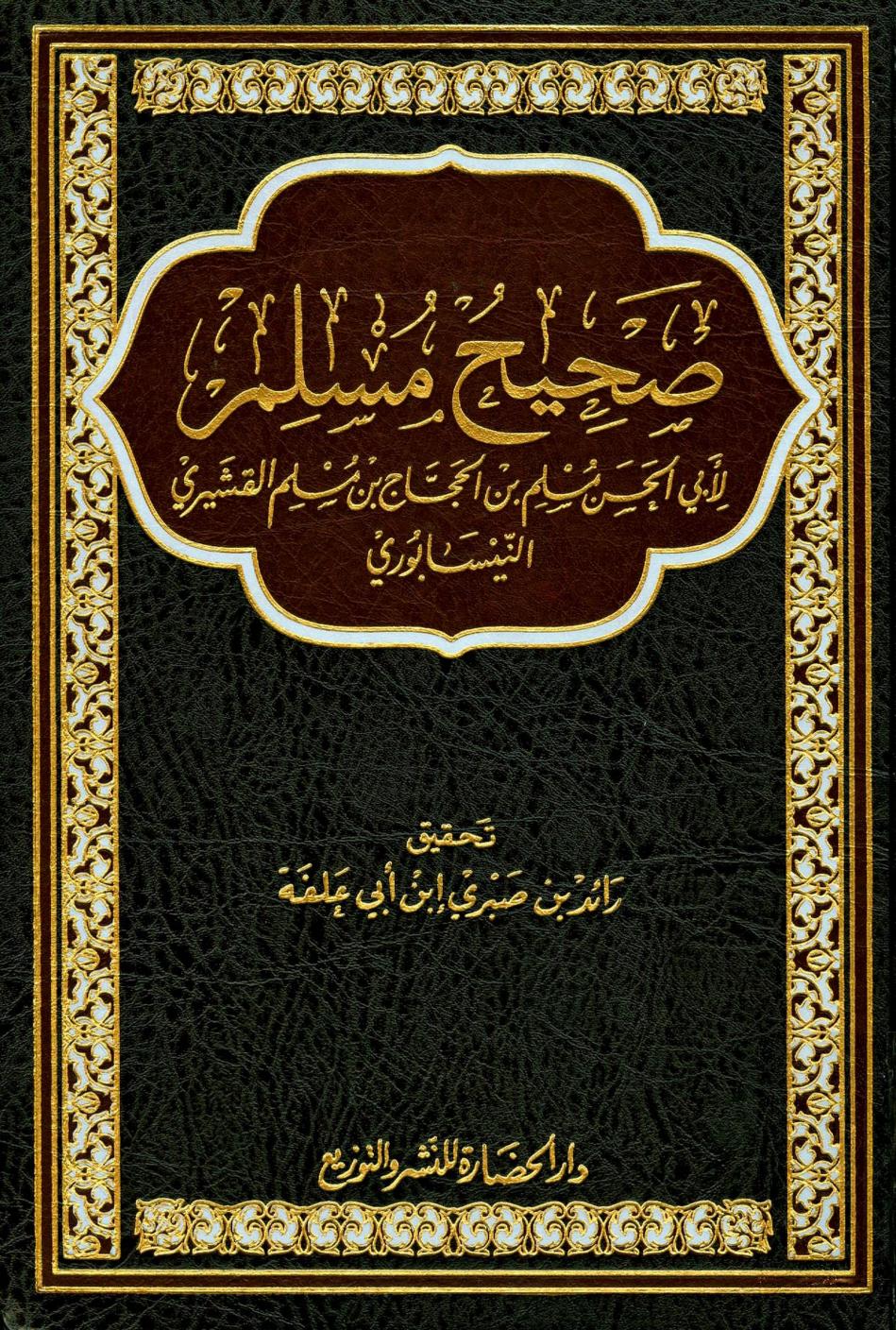


Smart Quran & Hadith Search
You can use this search to find anything in the Quran in Arabic, Urdu, or English.To search Hadith, use the toggle button below to switch modes.

صَحِيحُ مُسْلِمٍ
✍️ الإمام مسلم بن الحجاج النيسابوري
📄 ابواب کی تعداد: 340
📘 احادیث کی کل تعداد: 34,373
کتاب: امور حکومت کا بیان
Book on Governance and Administrative Affairs
حَدَّثَنَا أَبُو بَكْرِ بْنُ أَبِي شَيْبَةَ، حَدَّثَنَا أَبُو الْأَحْوَصِ، وَوَكِيعٌ، ح وحَدَّثَنِي أَبُو سَعِيدٍ الْأَشَجُّ، حَدَّثَنَا وَكِيعٌ، ح وحَدَّثَنَا أَبُو كُرَيْبٍ، وَابْنُ نُمَيْرٍ، قَالَا: حَدَّثَنَا أَبُو مُعَاوِيَةَ، ح وحَدَّثَنَا إِسْحَاقُ بْنُ إِبْرَاهِيمَ، وَعَلِيُّ بْنُ خَشْرَمٍ، قَالَا: أَخْبَرَنَا عِيسَى بْنُ يُونُسَ، كُلُّهُمْ عَنِ الْأَعْمَشِ، ح وحَدَّثَنَا عُثْمَانُ بْنُ أَبِي شَيْبَةَ، وَاللَّفْظُ لَهُ، حَدَّثَنَا جَرِيرٌ، عَنِ الْأَعْمَشِ، عَنْ زَيْدِ بْنِ وَهْبٍ، عَنْ عَبْدِ اللهِ، قَالَ: قَالَ رَسُولُ اللهِ صَلَّى اللهُ عَلَيْهِ وَسَلَّمَ: «إِنَّهَا سَتَكُونُ بَعْدِي أَثَرَةٌ وَأُمُورٌ تُنْكِرُونَهَا»، قَالُوا: يَا رَسُولَ اللهِ، كَيْفَ تَأْمُرُ مَنْ أَدْرَكَ مِنَّا ذَلِكَ؟ قَالَ: «تُؤَدُّونَ الْحَقَّ الَّذِي عَلَيْكُمْ، وَتَسْأَلُونَ اللهَ الَّذِي لَكُمْ
It has been narrated on the authority of 'Abd al-Rahman b. Abd Rabb al-Ka'ba who said: I entered the mosque when 'Abdullah b. 'Amr b. al-'As was sitting in the shade of the Ka'ba and the people had gathered around him. I betook myself to them and sat near him. (Now) Abdullah said: I accompanied the Messenger of Allah ( صلی اللہ علیہ وسلم ) on a journey. We halted at a place. Some of us began to set right their tents, others began to compete with one another in shooting, and others began to graze their beasts, when an announcer of the Messenger of Allah ( صلی اللہ علیہ وسلم ) announced that the people should gather together for prayer, so we gathered around the Messenger of Allah ( صلی اللہ علیہ وسلم ). He said: It was the duty of every Prophet that has gone before me to guide his followers to what he knew was good for them and warn them against what he knew was bad for them; but this Umma of yours has its days of peace and (security) in the beginning of its career, and in the last phase of its existence it will be afflicted with trials and with things disagreeable to you. (In this phase of the Umma), there will be tremendous trials one after the other, each making the previous one dwindle into insignificance. When they would be afflicted with a trial, the believer would say: This is going to bring about my destruction. When at (the trial) is over, they would be afflicted with another trial, and the believer would say: This surely is going to be my end. Whoever wishes to be delivered from the fire and enter the garden should die with faith in Allah and the Last Day and should treat the people as he wishes to be treated by them. He who swears allegiance to a Caliph should give him the piedge of his hand and the sincerity of his heart (i. e. submit to him both outwardly as well as inwardly). He should obey him to the best of his capacity. It another man comes forward (as a claimant to Caliphate), disputing his authority, they (the Muslims) should behead the latter. The narrator says: I came close to him ('Abdullah b. 'Amr b. al-'As) and said to him: Can you say on oath that you heard it from the Messenger of Allah ( صلی اللہ علیہ وسلم )? He pointed with his hands to his ears and his heart and said: My ears heard it and my mind retained it. I said to him: This cousin of yours, Mu'awiya, orders us to unjustly consume our wealth among ourselves and to kill one another, while Allah says: O ye who believe, do not consume your wealth among yourselves unjustly, unless it be trade based on mutual agreement, and do not kill yourselves. Verily, God is Merciful to you (iv. 29). The narrator says that (hearing this) Abdullah b. 'Amr b. al-As kept quiet for a while and then said: Obey him in so far as he is obedient to God; and diqobey him in matters involving disobedience to God.
حضرت عبداللہ (بن مسعود رضی اللہ عنہ) سے روایت ہے کہ رسول اللہ صلی اللہ علیہ وسلم نے فرمایا: اب میرے بعد (کچھ لوگوں سے) ترجیحی سلوک ہو گا اور ایسے کام ہوں گے جنہیں تم برا سمجھو گے۔ صحابہ نے عرض کی: اللہ کے رسول! ہم میں سے جو شخص ان حالات کا سامنا کرے اس کے بارے میں آپ کا کیا حکم ہے؟ آپ نے فرمایا: تم پر (حکام کا) جو حق ہے تم اس کو ادا کرنا اور جو تمہارا حق ہے وہ تم اللہ سے مانگنا